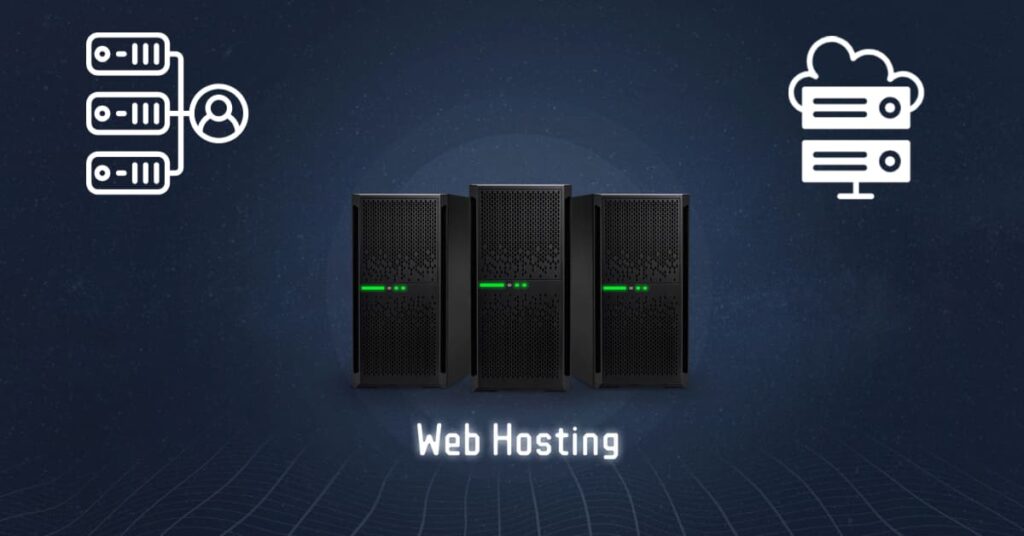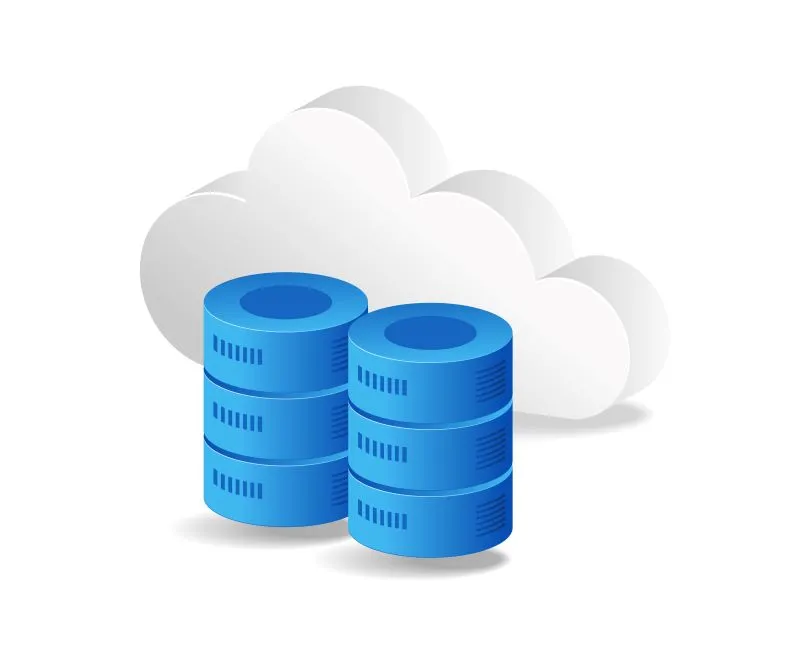Web Hosting for Beginners: Interesting Guide in 2025
Web hosting is an online service that makes the content of your website available via the internet. When you purchase a hosting plan, you are renting space on a real server to store and save all of the files and data for your website.
Web hosts supply the hosting technologies and resources essential for your website’s effective and secure operation. They are in charge of keeping the server up and operating, implementing hosting security measures, and ensuring that data such as texts, photographs, and other files are successfully delivered to the browsers of visitors.
This blog post will explain what web hosting is, how it works, and what types of web hosting are available on the market today.
What Exactly Is Web Hosting?

Web hosting is a type of Internet service that allows you to make your website or web application accessible on the Internet. When you sign up for a web hosting service, you are essentially renting space on a real server to store all of the files and data required for your website to function properly.
What Is the Process of Web Hosting?

The server that hosts your website is a physical computer that runs continuously to ensure that the site is always accessible to visitors. Purchasing web hosting servers allows you to keep all of your website’s data on the servers of your provider.
When a user inserts your domain name into the address bar of their browser, the web host’s server will transfer all of the files required to load your website.
You can host your own website, but this needs substantial technical knowledge. Setting up and installing a web server from scratch, including the equipment, infrastructure, hardware, and software, is what self-hosting implies. You will also be responsible for fixing issues, problems, and maintenance.
A web hosting service provider is like a house for your website. And ensures that your site works optimally and that security protocols are followed. Furthermore, it streamlines the numerous difficult components of website hosting, such as software installation and technical support.
Web Hosting Categories
With numerous web hosting choices available today, deciding which one is ideal for your website can be difficult.
Most web hosts provide several hosting packages for various types of customers, ranging from company website owners to personal blog authors. For instance, if you want to start an e-commerce store, you need an e-commerce hosting package.
It is advisable to start with the most basic hosting package. You can upgrade to a more advanced plan as your site grows in popularity.
Let’s discover the most popular ones.
Shared Web Hosting

Shared hosting is ideal for beginners to start hosting their websites without technical skills. But your website will be kept on the same server as several other websites. All domains on a shared hosting plan use the same server resources, such as RAM (Random Access Memory) and CPU (Central Processing Unit). However, because all resources are shared, shared hosting plans are relatively inexpensive, making them a good choice for new website owners.
In most circumstances, newcomers will find shared hosting to be the most straightforward means of hosting their website; hence, whether you’re a small business owner, a community group, or a stay-at-home mom with a desire to blog, your site will be available on the internet. Shared hosting plans frequently have numerous useful tools, and you may be able to obtain additional services such as website builder tools, WordPress hosting, and the ability to email clients.
Although shared hosting offers website owners a more straightforward approach to the web, the trade-off is that you share the server with several other website owners. This means that spikes in usage can have an impact on the user experience of your website.
Shared hosting plans are great for website owners who do not have a lot of online traffic.
Virtual Private Servers (VPS Hosting).

A virtual private server (VPS) hosting package is the ideal compromise between a shared server and a dedicated server. It’s great for website owners who want more control but don’t want a dedicated server.
VPS hosting is distinct in that each website is housed in its own space on the server, although it shares a physical server with other customers. While VPS hosting allows website owners more control and storage space, it is still not capable of handling extremely high traffic levels or spikes in usage, which means that site performance and page speed can still be negatively impacted by other websites on the server.
VPS hosting is typically utilized by website owners who want dedicated hosting but lack the necessary technical competence. VPS hosting combines the low cost of shared hosting with the control of dedicated hosting. A fantastic option for sophisticated users and those who require specific program and package installations.
Cloud Web Hosting.

Cloud hosting is the latest IT industry jargon. In terms of web hosting, it refers to several computers working together to run programs using shared computing resources. It is a network-based hosting solution that allows businesses to use computing resources as if they were utilities.
Users can utilize as many server resources as they need without having to create and maintain their own computing infrastructure. The resources are distributed across multiple servers, limiting the possibility of downtime due to server failure.
Cloud-based hosting is scalable, which means your site can grow over time while only using the resources it requires, and the website owner only pays for the resources consumed.
Dedicated Web Hosting.

Dedicated hosting provides website owners with the most control over the server on which their website is hosted. Because you are the sole tenant of the server, your website is the only one stored on it. This means you have complete root and admin access, allowing you to control everything from security to the operating system you use.
All of that control comes at a cost.
Dedicated servers are among the most costly web hosting plans. They are typically utilized by website owners with large amounts of website traffic and those who require complete control over their servers. Furthermore, a high level of technical competence is necessary for the server’s installation and continuing management.
Managed Web Hosting
Most hosting packages available online are likely managed. Technical services like hardware and software maintenance, setup and configuration, hardware replacement, technical assistance, upgrading, and monitoring are provided by hosting providers. The provider manages the day-to-day management of the hardware, operating systems, and standardized applications in managed hosting.
Although there are numerous web hosting plans to pick from, it all boils down to finding one that meets your requirements. Each plan caters to the demands of different groups, and knowing what your needs are on a website can help you choose the proper plan for you and your business.
Unmanaged Web Hosting.
Unmanaged Web hosting is a hosting plan that includes no extra services. Unmanaged Web hosting, for example, allows you to obtain a server with only an operating system installed. This means you’ll have to install any required software on your own. (It doesn’t just mean WordPress or Drupal, but also basic system software like Apache or PHP.)
The term ‘unmanaged’ refers to the fact that the hosting business does not provide any services or perform any management chores on your server. You’ll have to do it yourself if you want stuff done.
WordPress Web Hosting.

This type of CMS web hosting service offers a WordPress-optimized server environment to assist your site load faster and avoid difficulties. Other types of web hosting, however, continue to support websites built with this popular content management system (CMS).
WordPress-optimized hosting plans typically include features such as pre-installed themes, WordPress plugins for fundamental functions like caching and security, and other tools.
How Do You Pick the Best Web Hosting Service Provider?
As your website expands, you may require more storage space, bandwidth, and other resources. In that situation, you might think about switching to a more advanced hosting solution, such as cloud hosting or VPS.
As a result, ensure that the web hosting provides a variety of web hosting options so that you can upgrade at any time. Furthermore, when picking between web hosting providers, there are various variables to consider.
Online Customer Reviews.

When looking for the best hosting for your site, look for full web hosting reviews that cover multiple hosting providers. These reviews should go deeper than surface level and cover technical aspects like server uptime, speed, performance consistency, and customer support response time.
Good reviews will include real-world testing and data-driven metrics like uptime percentages and page load time, so you can see how a provider’s servers perform under different conditions. Many of these reviews will also cover pros and cons, feature comparisons, pricing, and user experiences so you have a full picture before you decide.
By reading all this information, you’ll be better equipped to choose a hosting provider that matches your site’s needs and long-term goals.
Security.

Check that the hosting company has strong security measures in place to safeguard your site from viruses or DDoS attacks.
They could include access management, virus detection, automated backups, and updates.
Uptime of Web Hosting.
Frequent and unexpected downtime can have a major impact on your business and your customers’ trust due to poorly maintained or unstable web servers. As a result, make certain that the host you choose meets the uptime guarantee they offer.
An uptime guarantee and fair terms of service demonstrate hosting businesses’ commitment to keeping their systems up and functioning.
The Control Panel.
You may manage your hosting account without needing to log in to the web server using a hosting control panel. As a result, it is preferable to work with web providers who provide an easily controllable user interface for users of various skill levels.
Technical Specifications
Aside from sufficient storage space, computing power, and bandwidth, you should search for other qualities that will help your website work properly.
Customer service is available around the clock.
If your website experiences unexpected slowness, crashes, or security breaches, round-the-clock customer or technical assistance comes in handy. Check to see if the host offers additional assistance resources such as tutorials and knowledge bases.
Extra Services
A superb hosting package includes free add-ons and services such as an SSL certificate, a corporate email account, or a content delivery network (CDN).
Bottom line.
A new brand website requires a lot of thinking before making a decision; you will have to know how and where to host it.
Whether you’re starting an e-commerce business, drop shipping, an affiliate marketing website, blog, or SAAS(Software-as-a-Service), the first step is to sign up for a hosting account.
Understanding the basics of web hosting and the many types of web hosting services can assist you in locating a cost-effective and dependable option for your website.
When you compare different web hosting services, keep your needs in mind and weigh the benefits and drawbacks of various web hosting businesses.







